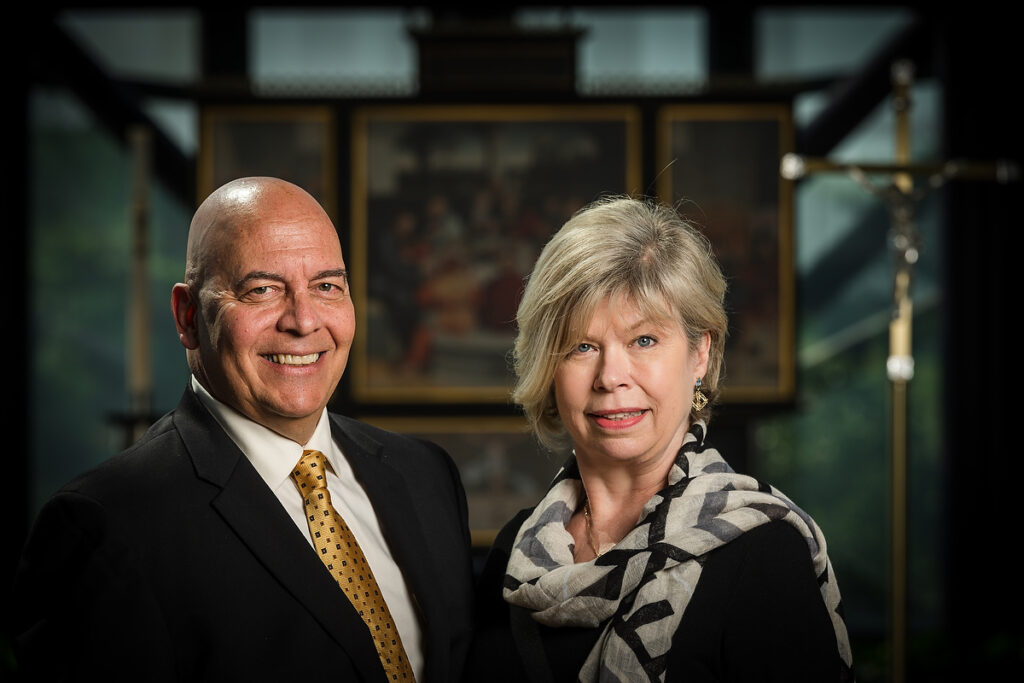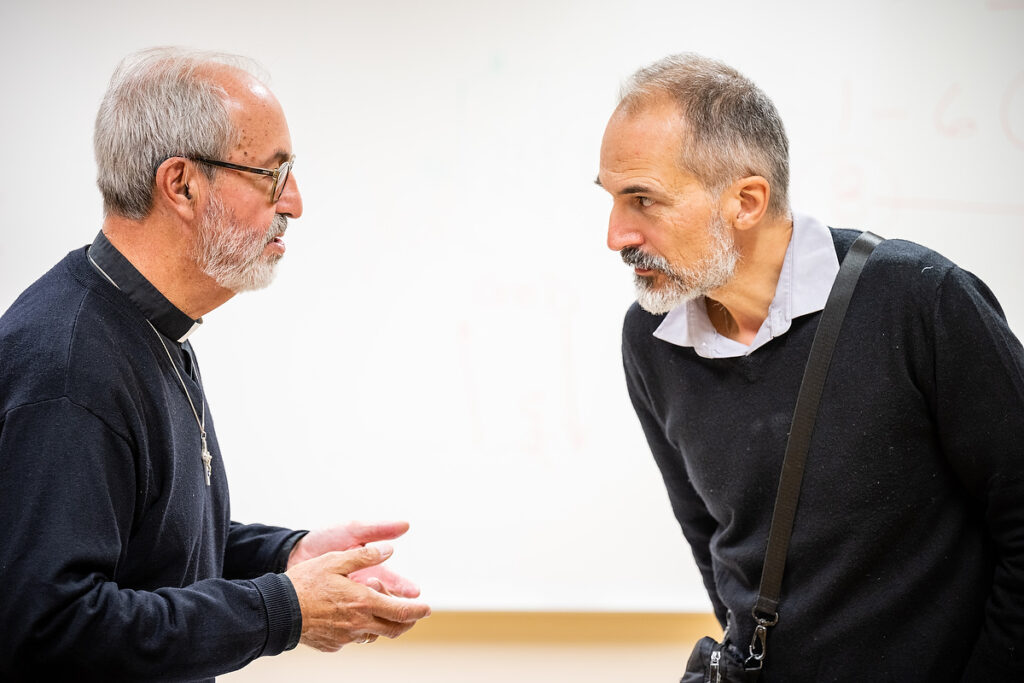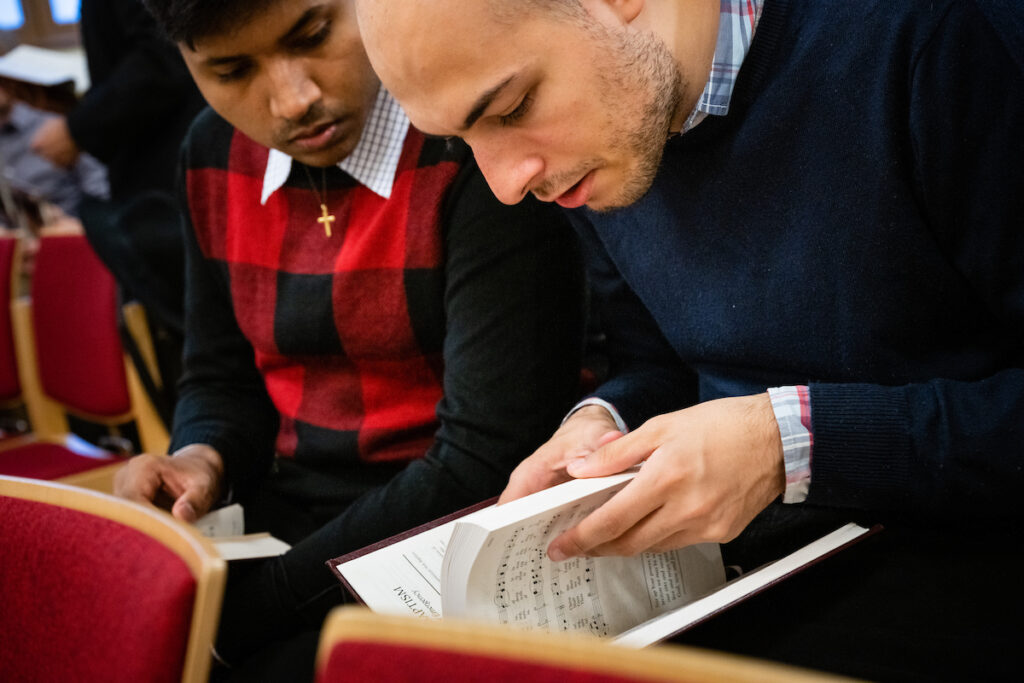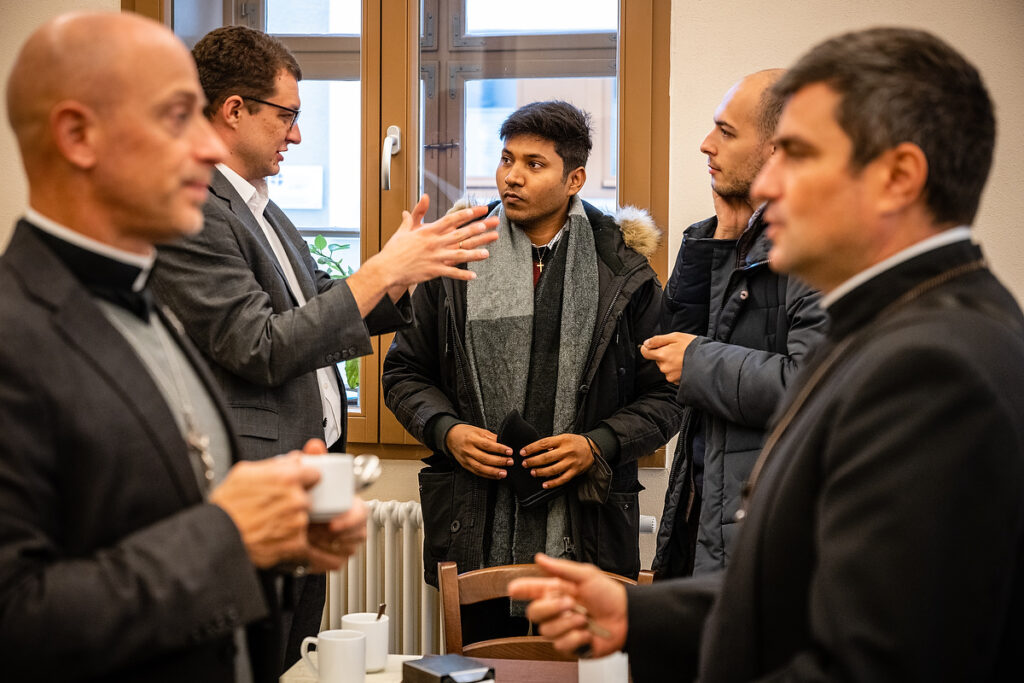Feature
The Return to Rome
A handful of Lutherans have come together to plant the first confessional Lutheran church in Italy.
In 1511, Martin Luther made the long pilgrimage from Wittenberg to Rome. Whatever high expectations he had for the Eternal City were toppled by what he witnessed there. He was confronted with the church’s extravagance, corruption, monopolistic grip on the Bible (the Latin-only version, which few could obtain or even read), veneration of relics of the saints, selling of indulgences, and total neglect of the poor. Luther railed that the church of Rome had become “the most licentious den of thieves [Matt. 21:13], the most shameless of all brothels, the kingdom of sin, death, and hell. It is so bad that even Antichrist himself, if he should come, could think of nothing to add to its wickedness” (“Concerning Christian Liberty,” LW 31:336).
Now in 2022, Luther is back in Rome. Not Luther himself, of course, but the confessional Lutheranism of The Lutheran Church—Missouri Synod (LCMS). Four men and one woman, living in three different regions of Italy, are enrolled in a four-year, 40-course theology program at the Luther Academy in Riga, Latvia. After finishing the program, the students will receive a Bachelor of Theology professional degree, which can lead to ordination or commissioning. The students enrolled include Luiz Roberto Lange; Lorenzo Murrone; Joshua Salas; and my wife, Nancy, and me.
Back to Italy
My parents grew up in Italy and later emigrated to the United States. In the late ’90s, Nancy and I tracked my family’s heritage in the Abruzzo region and met family members who still lived there. We got to know the area so well that, between 2012 and 2017, we ran tours of the area. We often shared our faith with Italian friends and family, and we were grieved that few, if any, of them could say with certainty that they were headed for heaven’s glory.

While I was recovering from a medical issue in 2017, Nancy and I first started talking about becoming LCMS missionaries. Nancy had previously met the Rev. James Krikava, LCMS regional director for Eurasia, at a church event, and he wanted to bring me on as one of two Eurasia business managers and the very first LCMS missionary to Italy. The next September, we left behind our children and grandchildren and moved to Abruzzo, Italy.
There was already one confessional Lutheran man living in Italy: Luiz Roberto Lange. He had been baptized, catechized and confirmed at the Evangelical Lutheran Church of Brazil in Porto Alegre and began pre-seminary studies there as a young man. But Lange did not finish his training and instead segued into studying music. He spent time in the U.S., where he eventually fell away from the faith, before moving to Padua, Italy, with his family.
In 2014, through the witness of a friend in Italy, God called Lange back to the Christian faith. He attended several different churches and eventually found a Lutheran military chaplain in nearby Vicenza. Lange attended a few services there and found himself rediscovering confessional Lutheranism. He was finally back home with the liturgy he loved, although the services were held in English. He reached out to the LCMS Office of International Mission (OIM) and was put in contact with Krikava.

In 2016, Lange took the initiative to fly to Prague to meet Krikava in person. They devised a plan for the Rev. Sorin-Horia Trifa, a Romanian pastor who works with the OIM, to serve as an itinerant missionary to Italy. A couple of months later, both Krikava and Trifa flew to meet with Lange, with the specific goal of starting a church plant in Italy.
The Impact of COVID-19
Nancy and I were barely getting settled in Italy when COVID-19 came along. Italians were sequestered in their homes twice under Italy’s three-month lockdowns. During the first lockdown, I received a call from fellow missionary Rev. Dr. John Bombaro, who had heard about a young man in Rome named Lorenzo Murrone who wanted to become Lutheran.
I immediately called Murrone. He told me he was baptized in the Roman Catholic Church and had attended church infrequently during his youth. During his teenage years, he entered what he describes as “a season of religious confusion.” He began studying Plato, Aristotle and other classical philosophers before segueing into early Christian history, the church fathers and New Testament studies. These courses propelled him to pursue a university program dedicated specifically to early Christian studies.

Through his coursework, Murrone began to reevaluate Christianity. He did not want to return to Roman Catholicism because of its observable disharmony with the Bible. He sought solace in both Anglicanism and Pentecostalism. Though confident that Christianity was true, Pentecostalism drove him into despair with its distorted views of sin, forgiveness and works righteousness. In 2017 at All Saints Anglican Church in Rome, Murrone met Joshua Salas, who would soon become his best friend and Christian brother.
Salas is from Pakistan. A devout Christian from his youth, he attended both Pakistani Presbyterian and Pentecostal churches. He favored the Presbyterian church for its more traditional practices. Salas’ father secured a job in Rome, and eventually the whole family (mother, older sister and younger brother) moved there in 2017 and started attending All Saints.
Salas and Murrone conversed about theology and shared their mutual desire to one day become ordained. However, they also realized that the theology of the church they were attending did not match their understanding of the Bible. The head pastor suggested that they should “broaden their horizons” to accept a more liberal adaptation of the Scriptures, but for the two young men this was impossible.
It was during this period that Murrone discovered Lutheranism through YouTube. He became an avid fan of “Lutheran Satire” and the Rev. Jonathan Fisk’s “Worldview Everlasting” videos. He began corresponding with Fisk via email to inquire into Lutheranism. At the same time, Murrone and Salas met the Rev. Simone Caccamo, who happened to be the pastor at the Rome Baptist Church. Caccamo invited them to attend his church, where they became enamored by the family environment they encountered — something severely lacking at the church where they first met.
Through their correspondence, Fisk directed Murrone to Bombaro, who redirected him to me. Nancy and I traveled to Rome to meet Murrone and Salas and talked with Trifa about the possibility of catechizing both of them online. Several weeks later, Trifa completed catechesis instruction with both men, and Krikava flew to Rome to celebrate with us in their partaking of the Lord’s Supper in a Divine Service for the first time as Lutherans.
Caccamo graciously offered the new members of the Lutheran church plant the use of his Baptist church building, which is located in Rome’s historic center, just 300 yards from the Pantheon. However, COVID restrictions made it too difficult to assemble in person regularly. The young church was anxious to provide a way to meet together at least once a week. We decided to start a weekly online service. Together, we worked on translating the liturgy into Italian, along with several hymns and Luther’s Small Catechism, and began offering a weekly service on Saturday afternoons.
These online services have been going on throughout the pandemic and have had as many as 24 attendees, with a core of around 14 each week. As Lange, Murrone, Salas and I go through the Luther Academy training to become Lutheran pastors, we have developed a calendar rotation throughout the month. We have been delivering sermons previously preached by selected LCMS pastors since the beginning of 2020. We translate each sermon into Italian and review the sermons together before it is time to preach.
The Future of the Italian Church

After two years of online services, the new Rome church plant is still without a full-time pastor. Ordination is years away, so Krikava reached out to the Rev. Tyler McMiller, who at the time was completing his coursework at Concordia Theological Seminary, Fort Wayne, and asked if he would serve as pastor of the church plant in Rome. McMiller and his family served as missionaries in Central and South America during much of his childhood, so he was eager for the opportunity to serve in this way.
Now a new chapter begins for the Italian Lutherans. McMiller and his family are making final preparations to deploy to the land where Martin Luther was sent 500 years ago. This time, McMiller is the one called to shepherd the flock already assembled there, to bring them the gifts of Word and Sacrament for the nourishment of their souls — with the help of God.
Learn More
• Meet missionaries Michael and Nancy Morizio
• Meet missionary Rev. Tyler McMiller
• Read more about the Luther Academy in Riga
Pray with Us
Lord of the church, Your holy apostles Peter and Paul visited Rome and there proclaimed the Good News of Jesus Christ. Your church throughout the ages has found both struggles and strength in the land of Italy and her neighbors. Now in our day, may the Gospel once again resoundingly ring out in Rome and other places around Europe, as You call missionaries and Your followers to walk where others have gone and to bear witness to the unchanging truth of the Gospel of Jesus Christ. May this same Gospel fill our lands and our homes, that with Your holy apostles we may all be one in Christ Jesus, in whose name we pray. Amen.
Share Jesus with the World
Your generosity today makes possible your Synod’s witness and mercy efforts both at home and abroad.
Are you looking to direct your gifts for work that’s more specific?
Visit the LCMS online ministry and mission catalog to find those opportunities most meaningful to you!
Don’t see what you’re looking for?
Contact LCMS Mission Advancement at 888-930-4438 or mission.advancement@lcms.org to talk about all the options available.
Michael Morizio
LCMS missionary and associate regional business manager for the Eurasia region.

